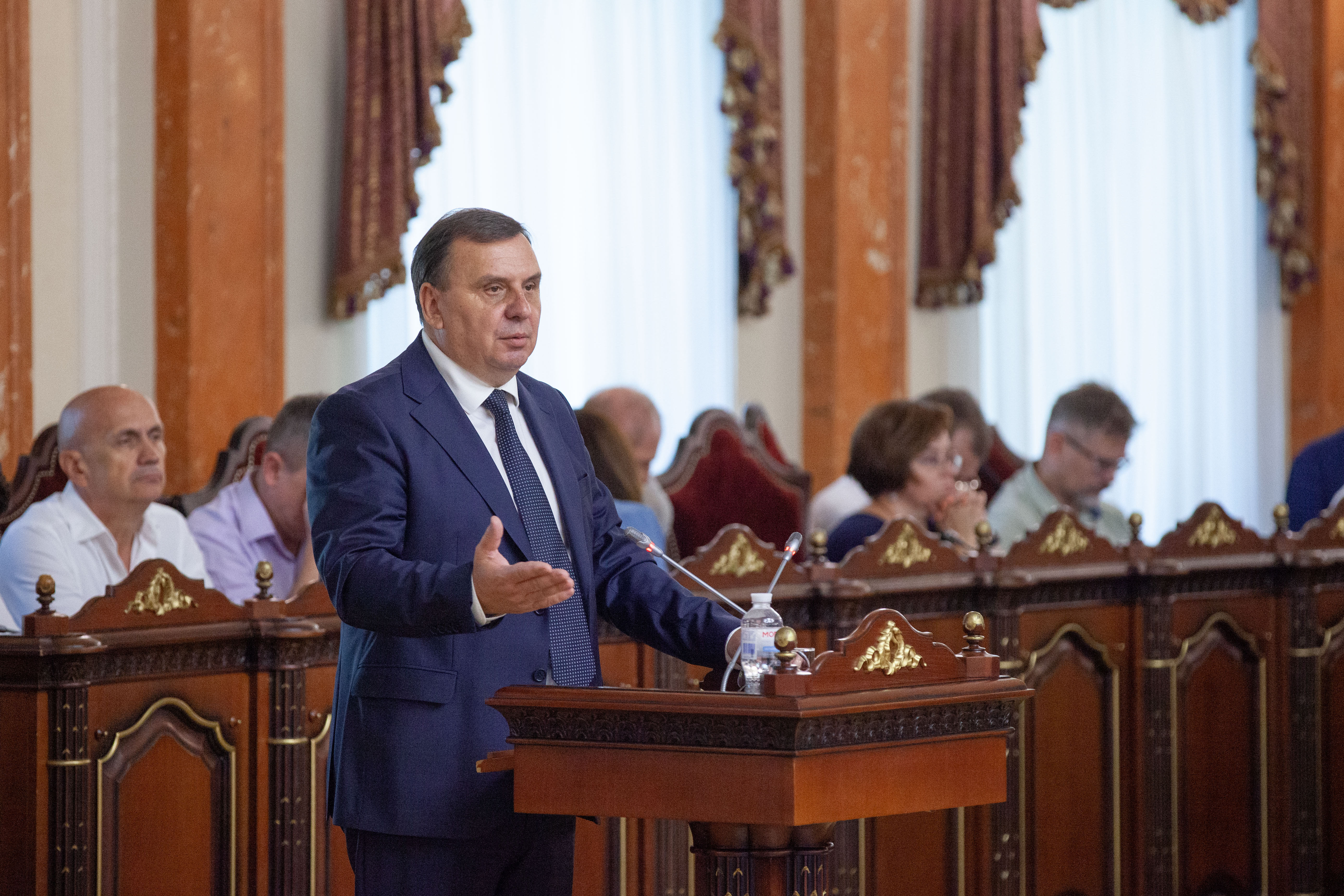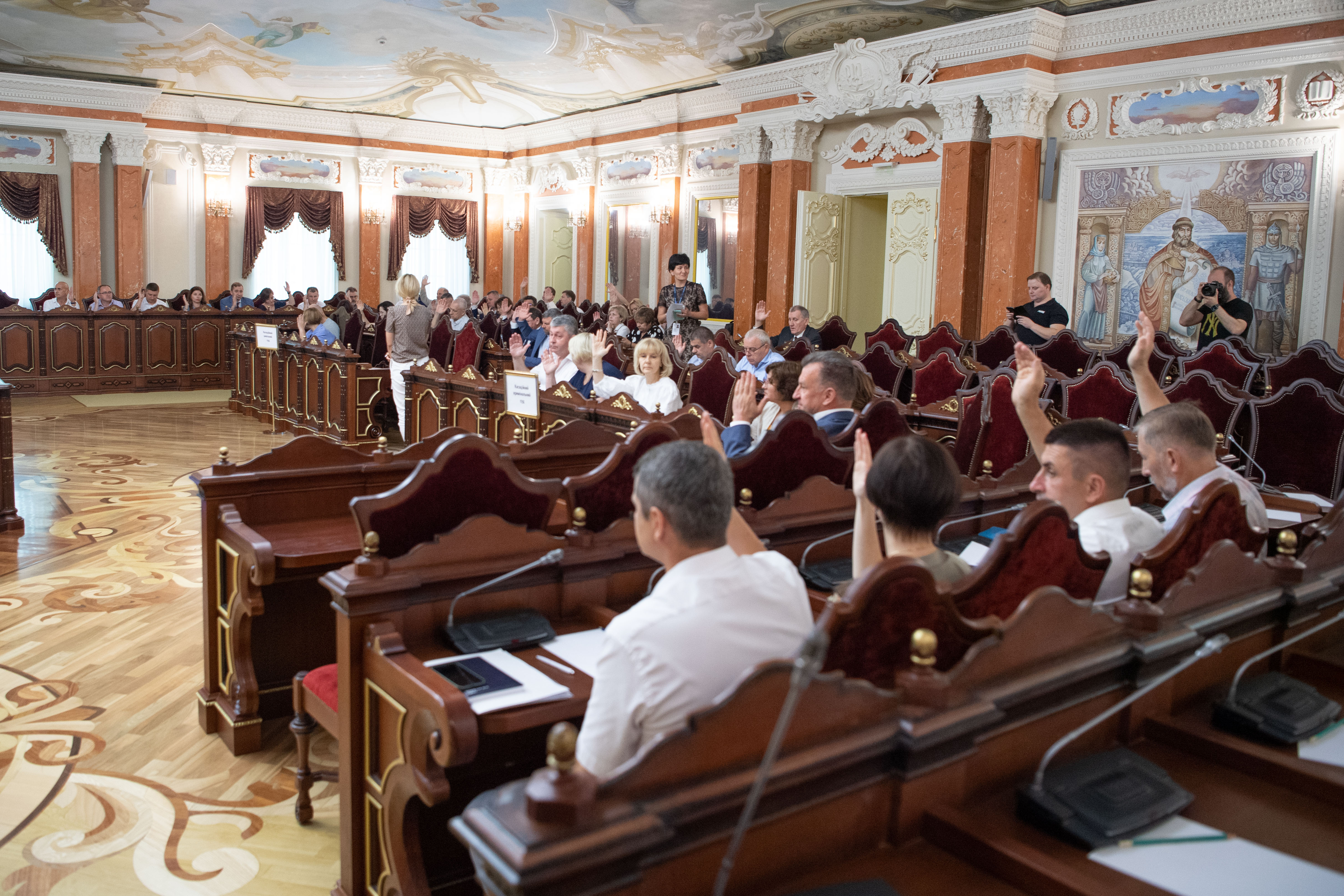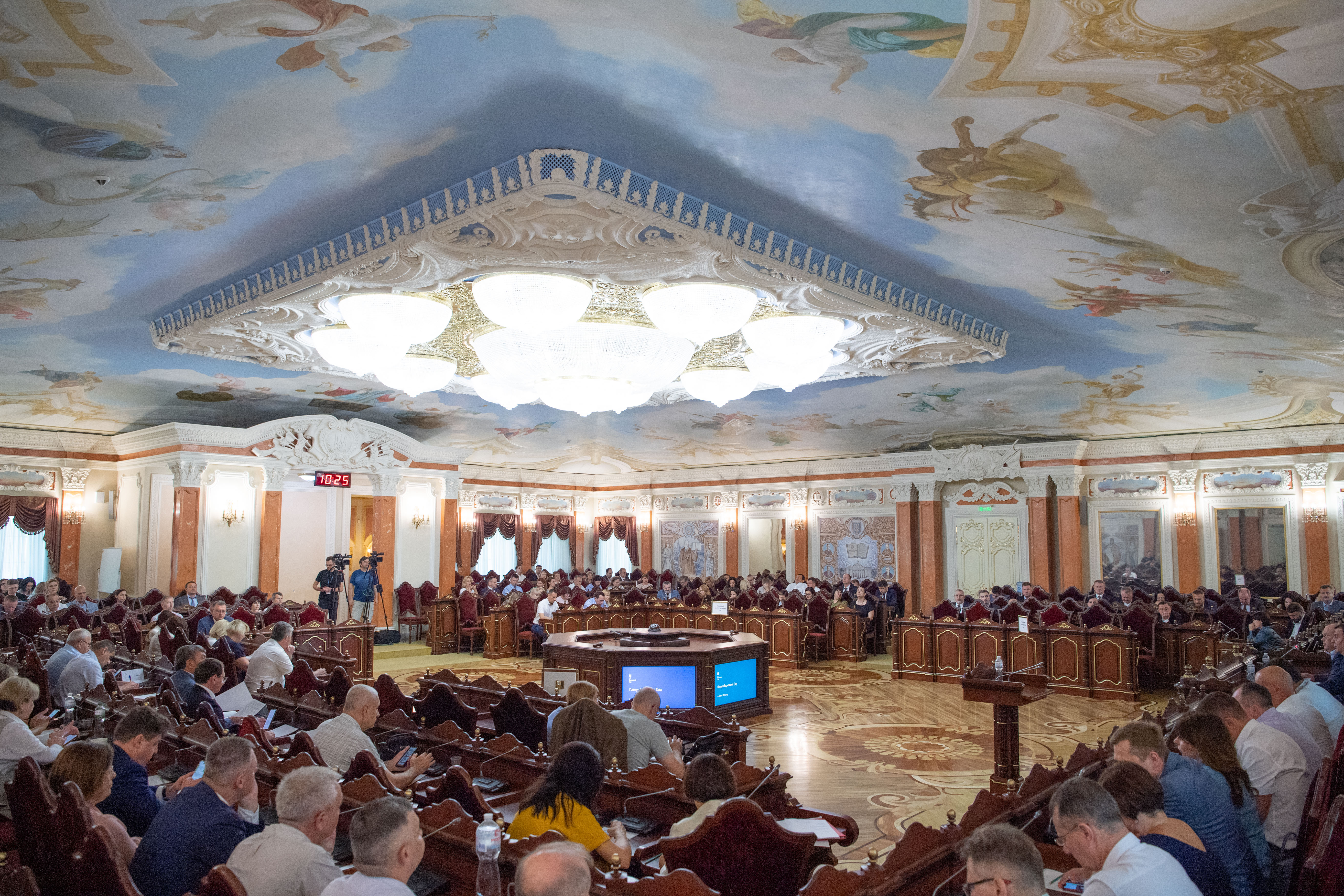Contact center of the Ukrainian Judiciary 044 207-35-46

During the session held on August 4, 2023, the Plenum of the Supreme Court approved the opinion regarding the draft Laws of Ukraine No. 9438 and No. 9438-1 "On Amending the Criminal and Criminal Procedure Codes of Ukraine Regarding Strengthening Liability for Corruption Criminal Offenses in the Sphere of Justice" dated June 29, 2023 and July 14, 2023, correspondingly.
The opinion states that certain provisions of the specified draft laws needed to be finalized. Thus, the SC Plenum drew attention, in particular, to the legislator's selective approach, which consists in strengthening criminal liability for corruption offenses in only one sphere – the sphere of justice.
The speaker on this issue – the President of the Supreme Court, Stanislav Kravchenko – noted that, in general, strengthening of criminal liability for some criminal manifestations, together with the criminalization of certain acts, is one of the vectors of the dynamics of Ukrainian legislation on criminal responsibility. However, the key regularity of the criminal law policy consists in the fact that strengthening of criminal liability in itself cannot be considered a sufficient means of counteraction to the commission of criminal offenses, including corruption ones.
If the state intends to actively use this tool and at a certain stage increases criminal liability for corruption criminal offenses, then the question arises why this approach applies exclusively to the sphere of justice, while according to the results of sociological studies, other spheres in Ukraine are the most corrupt.

The SC President added that the creation of such casuistic norms does not create the impression of a systematic counteraction to corruption, but is actually a criminal-legal response to a single case.
In addition, the opinion underlines that most of the articles proposed in the draft Law No. 9438 create unjustified potential competition with the articles of the Special Part of the current Criminal Code of Ukraine.
Besides, the SC Plenum pointed out the improper differentiation of criminal liability for corruption criminal offenses and differences in the formulation of the qualifying features of such offenses, which consist in the use of terminological expressions with different content by the legislator.
Also, the SC Plenum approved the opinion regarding the draft Laws of Ukraine "On Amending the Law of Ukraine No. 9454 and No. 9454 -1"On the Judiciary and the Status of Judges" Regarding the Introduction of Additional Procedures to Strengthen Public Trust in the Judiciary" dated July 3, 2023 and July 11, 2023, correspondingly.
In the opinion, inter alia, it is indicated that the mentioned draft laws cannot be adopted in the presently proposed version, since the norms stipulated by them significantly violate the principle of judges’ independence, international and constitutional guarantees of the independence of the judiciary and call into question the possibility of functioning of effective judicial system in Ukraine.

While reporting on this issue, the SC President emphasized that the procedure for monitoring the work of the court proposed in draft Laws No. 9454 and No. 9454-1 for all judges of the relevant court due to the actions of one judge would lead to negative consequences for these judges. Carrying out any intervention measures, amounting to collective and discriminatory application of sanctions, is incompatible with norms in the field of human rights.
The SC Plenum recognized that certain provisions of draft Laws No. 9454 and No. 9454-1 needed to be finalized. In particular, according to the opinion, it is necessary to provide a norm in the specified draft laws according to which the monitoring of a court's work must be completed no later than two months after its start, in order to compensate for the risks of using such monitoring for the reasons of pressure on the judges of the relevant court. The opinion also states that draft laws must be supplemented with a norm that monitoring the work of the court cannot refer to information related to cases pending in the court.
As noted by Stanislav Kravchenko, given the lack of proper regulatory control over the use of the polygraph for judges, the ambiguous practice of its use at the international level, conducting psychophysiological surveys of judges using the polygraph on purely formal grounds without proper legislative regulation presumes interference in judicial independence and may contradict fundamental rights, freedoms and legitimate interests of a person, his/her honour and dignity. "When the SC Plenum was preparing an opinion on the draft laws, it was not possible to find a single example of a state in which the application of polygraphs to judges had been provided for at the legislative level," he added.
Heaving heard the report of the President of the Supreme Court, the SC Plenum decided to appeal to the Verkhovna Rada of Ukraine regarding the inadmissibility of certain provisions of draft Laws No. 9454 and No. 9454-1.
